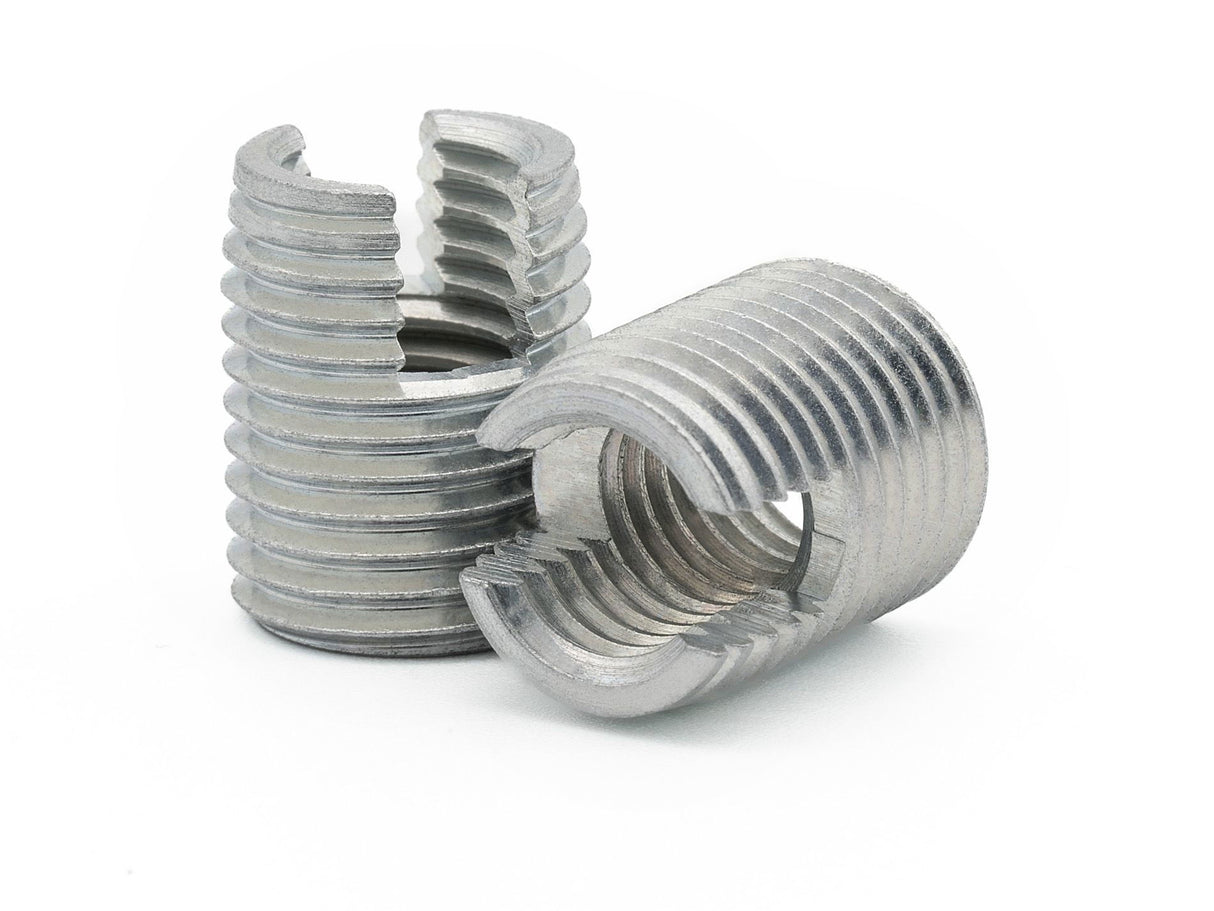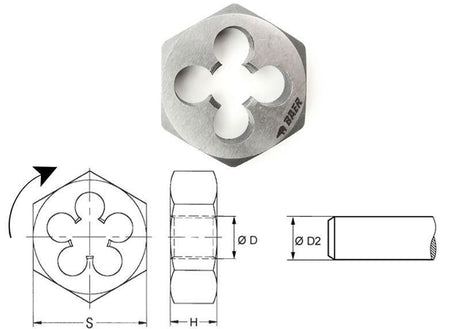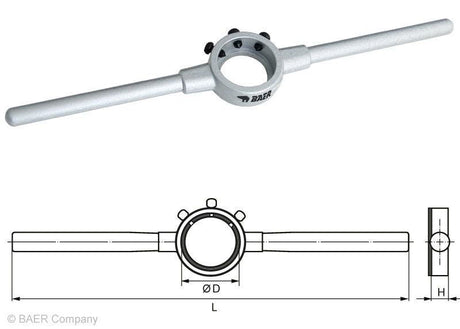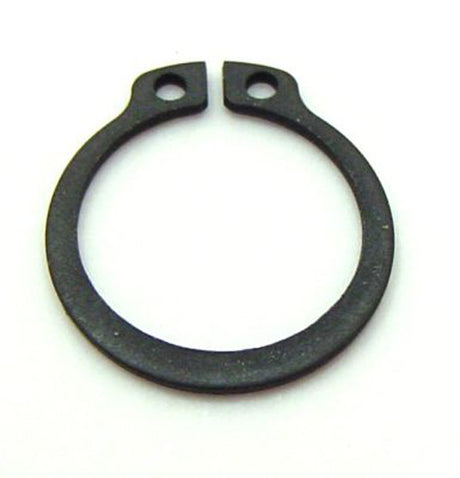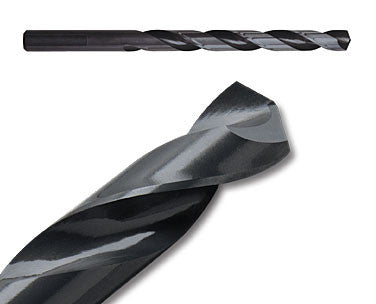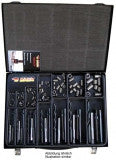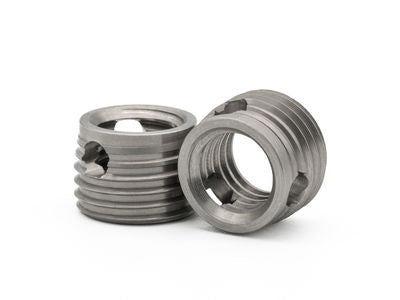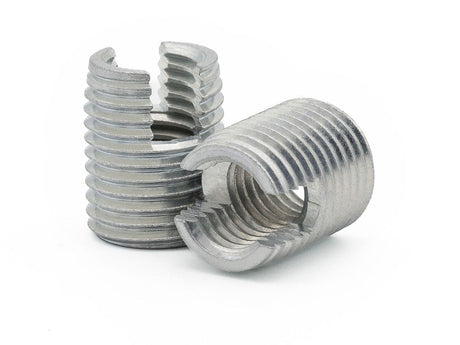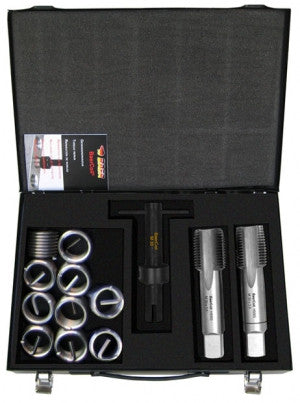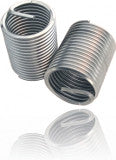1-FE04 - M4 BAERFIX INSERTS - 100Pck
1-FE04 - M4 BAERFIX INSERTS - 100Pck is backordered and will ship as soon as it is back in stock.
Couldn't load pickup availability
Delivery and Shipping
Delivery and Shipping
Shipping Information
Place your order before 2 PM for same-day shipping!
We partner with DPD for all deliveries, ensuring full traceability and a one-hour delivery window, so you don’t have to wait around all day.
Shipping Cost: €8.99
Free Shipping: On orders over €50
Fast, reliable, and hassle-free delivery—straight to your door!
We ship with DPD
Order before 2pm for next day delivery
Need to collect? We are open 9am - 5pm Mon Friday Saturday 10am - 4PM
Description
Description
BaerFix Thread Inserts with cutting slots M 4 x 0.7 - 8 mm - 100 pcs.
BaerFix® thread inserts are self-tapping and guarantee a permanent fixed thread connection in your workpiece and are extremely easy to handle. Simply screw them into the hole - you cut the holding thread yourself.
If your thread is worn or torn out, a stable material connection is no longer possible. This is where the BaerFix® self-tapping thread insert comes in. With our self-tapping thread inserts you can repair your broken internal thread or strengthen an existing thread. If there are damaged threads in your components, this does not have to be a waste. Simply insert a threaded bush with the same internal thread into the component, so that your thread is not only repaired, but can also be loaded at the same time with higher pull-out strength and is also more wear-resistant.
With BaerFix® thread inserts you need fewer connecting parts, reduce the screw dimensions to be used, save material and space - and all this with low weight and high requirements. For many products, saving weight is an important factor.
Thanks to the cutting slot, the thread inserts remain anchored in the workpiece even in the event of strong shocks or vibrations. The cutting slots can spring slightly inwards, so that there is an additional clamping effect for the screw. In many applications, this is advantageous for the design. If this effect is undesirable, we recommend our self-tapping thread inserts with cutting holes.
Dimensions
| Diameter | 4 |
|---|---|
| Pitch | 0,7 |
| Dimension | M 4 x 0,7 |
Characteristics
| Product group | Self-cutting thread inserts |
|---|---|
| Product type | BaerFix self-cutting inserts with cutting slots |
| Thread standard | M: Metric ISO standard thread according to DIN 13 |
| Tolerance | ISO2/6H |
| Direction | Right |
| Type | with cutting slots |
| Material | Case-hardened steel, galvanized |
Guidelines for material machining
| Maximum insertion torque | 5,5 Nm |
|---|---|
| Speed guide value for light metals | 400-600 R/min |
| Drilling depth | Min. drilling depth for through hole: 8.00 mm Min. drilling depth for blind hole: 10.00 mm |
| Pre-drilling diameter | Light metal alloys (tensile strength below 250 N/mm²): 5.9 mm Light metal alloys (tensile strength 250 - 300 N/mm²): 6.0 mm Light metal alloys (tensile strength 300 - 350 N/mm²): 6.1 mm Light metal alloys (tensile strength above 350 N/mm²): 6.2 mm Brass, non-ferrous metals, bronze (tensile strength above 350 N/mm²): 6.1 - 6.2 mm Cast iron (Brinel hardness below 150 HB ): 5.9 mm Cast iron(Brinel hardness 150 - 200 HB): 6.0 - 6.1 mm Cast iron (Brinel hardness above 200 HB ): 6.2 mm |
Attributes
- Thread repair damaged or worn threads
- Scrap recovery
- Thread armoring of materials with low shear strength such as aluminium and magnesium alloys, wood, PVC, etc
- For example, in an application in light metal, a pull-out strength can be achieved that is higher than the yield strength of an 8.8 screw.
- Cutting the holding thread itself during screwing in
- high compression with the holding material
- very high pull-out strength
- minimises space and weight
- high corrosion resistance
- easy to use
- Areas of application in the entire metal and plastics processing industry
Technical drawing

| D1 | M 4 x 0,7 |
|---|---|
| D2 | M 6,5 x 0,75 |
| L1 | 8 mm |
| Diameter | 4 |
Minimum wall thickness

| materials |
|---|
| Rmin (light metal): 1.30 mm Rmin (cast iron): 1.95 mm Rmin (plastic): 1.63 mm |
Payment & Security
Payment methods
Your payment information is processed securely. We do not store credit card details nor have access to your credit card information.
Size Matters!
No one in Ireland stocks the size range we do. Whether you need a pack of 2 or a box of 2,000 we've got you covered.
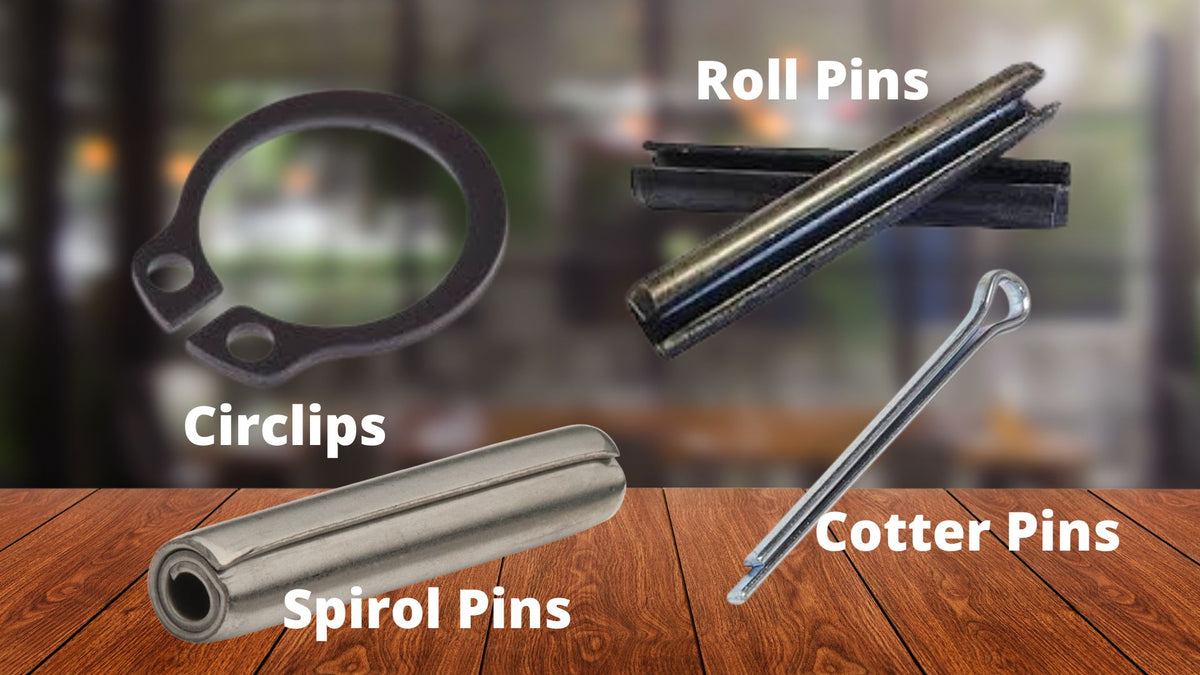
Product comparison grid
Add content here to explain a bit about the range of products on offer and which ones may be most suitable for your customers.
